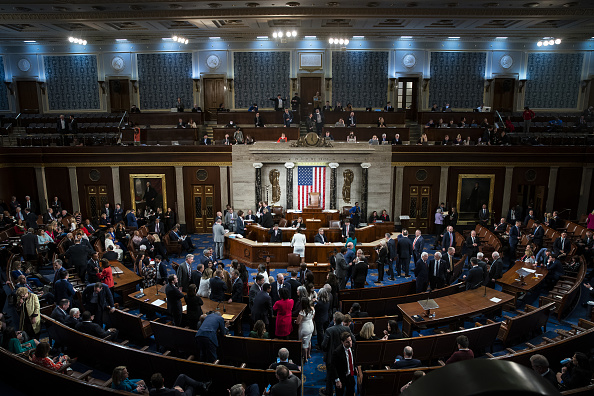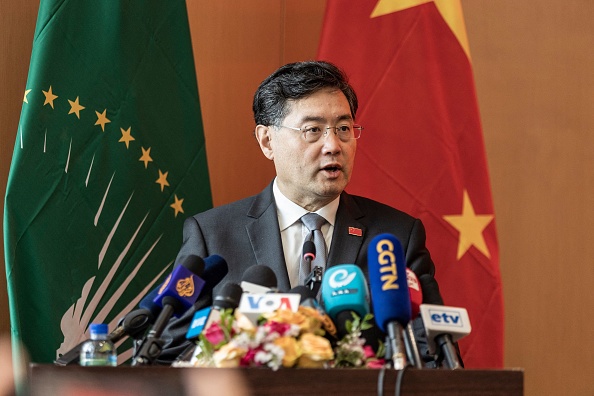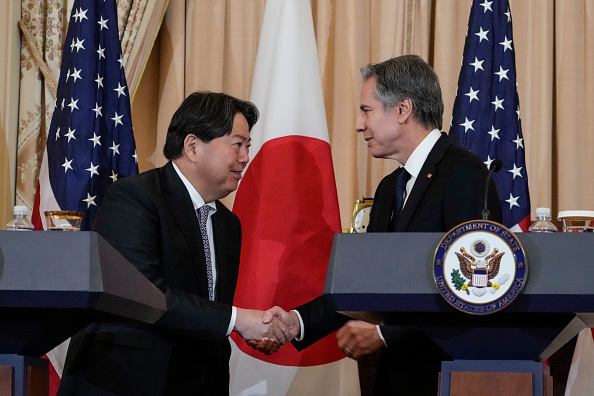
 Strategic Encounters
Strategic EncountersIn a 365-65 vote, the U.S. House of Representatives voted to establish a committee to re-assess U.S. policy towards China, with the Republican party arguing that the U.S. must counter China's growing economic and strategic power. This is a rare area of cross-party agreement, as the sentiment is reflected among both Democrats and Republicans in Congress, with bipartisan appetite building for taking a more confrontational approach in dealing with the world's second largest economy.
The White House said Wednesday it looked forward to working with Democrats and Republicans on the committee regarding an issue that is a top priority for the administration.
"Under President Biden we are more prepared to outcompete China, protect our national security and advance a free and open Indo-Pacific than ever before," White House press secretary Karine Jean-Pierre said.
The House has also passed a bill to ban exports of oil from the U.S. Strategic Petroleum Reserve to China, arguing that Biden is wasting U.S. strategic reserves.
"We shouldn't hand the keys to our energy future over to the Chinese Communist Party," said Representative Cathy McMorris Rodgers, a Republican from Washington state.
Chinese Minister of Commerce Wang Wentao responded, saying the restrictions are harming the interests of businesses and people on both sides.
Washington has also sought to engage in military deconfliction talks with Beijing, following a recent air encounter involving Chinese and U.S. aircraft over the South China Sea last month, which China has declined to participate in. But Secretary of State Antony Blinken is expected to travel to China in a few weeks, where he'll focus on bilateral competition between the two nations as well as areas of possible collaboration.
Learn more in "Facing-Off in a New Era," a video interview with Chen Dongxiao, President of the Shanghai Institutes for International Relations.
 Change of Guard
Change of GuardChina's new foreign minister Qin Gang has kicked off his term with a weeklong trip to five African countries, starting with a visit to the African Union (AU) in Addis Ababa. Speaking at the opening of the Chinese-built headquarters of the Africa Centres for Disease Control and Prevention in Ethiopia's capital, Addis Ababa, Qin emphasized China's partnership with Africa in security and economic development and avoided a new call for Africa's permanent representation on the United Nations Security Council.
"Africa should be a big stage for international cooperation, not an arena for major countries' competition," Qin said at a news conference with AU Commission chair Moussa Faki.
Additionally, one of Qin's first moves as Foreign Minister was to replace the Foreign Ministry's spokesperson Zhao Lijian, who was assigned in a lateral move to a new job as deputy director of the ministry's Department of Boundary and Ocean Affairs. Zhao has been a prominent and visible voice for the last three years, and the move comes as Beijing wrestles with some of its biggest and most disruptive domestic challenges in decades.
As Qin transitions out of his past role as Beijing's top envoy to the U.S., media reports indicate that China is likely to appoint Xie Feng, a vice foreign minister and a U.S. specialist, as its new ambassador to Washington, and rumors indicate it will happen soon. Xie previously participated in a wide array of bilateral negotiations, including arranging the meeting of presidents Xi Jinping and Joe Biden in November.
 Strengthening Ties
Strengthening TiesThe U.S. and Japan announced a significant strengthening of their military relationship this week, in a move largely aimed at deterring China. This will include the stationing of an upgraded U.S. Marine Corps unit in Japan that will be equipped with advanced intelligence, surveillance capabilities, and the ability to fire anti-ship missiles.
U.S. and Japanese officials met on Wednesday to discuss the matter, as part of the annual U.S.-Japan Security Consultative Committee meeting. The gathering comes just days before President Joe Biden plans to host Japanese Prime Minister Fumio Kishida at the White House.
"These actions will bolster deterrence in the region and allow us to defend Japan and its people more effectively in an increasingly challenging security environment," U.S. Defense Secretary Lloyd Austin said. He also noted that the unit is "more versatile, mobile and resilient."
The U.S. secretary of state, Antony Blinken, and his Japanese counterpart, Yoshimasa Hayashi, were also present at the meeting. "We agree that [China] is the greatest shared strategic challenge that we, our allies and partners face," Blinked stated.
Additionally, the leaders discussed the possibility of attacks from space, which they warned would trigger the security treaty between the U.S. and Japan.
Read more in "Deterring the Big One: Who Must the U.S. Fight in the Pacific?," by Doug Bandow, a Senior Fellow at the Cato Institute.
Prepared by China-US Focus editorial teams in Hong Kong and New York, this weekly newsletter offers you snap shots of latest trends and developments emerging from China every week, while adding a dose of historical perspective.
- 2023-01-06 Common Challenges
- 2022-12-23
- 2022-12-16 All in On Africa
- 2022-12-09 Seeking Stabilization
- 2022-12-02 Turf Tension
- 2022-11-18 Thawing Ties?
- 2022-11-11 Face to Face
- 2022-11-04 The Pacing Challenge
- 2022-10-28 Third Time’s the Charm
- 2022-10-21 United as Steel
- 2022-10-14 Party Time
- 2022-10-07 Elections Incoming
- 2022-09-30 Hot Intrigue
- 2022-09-23 Global Gridlock
- 2022-09-16 Injecting Stability
- 2022-09-09 Cutting Edges
- 2022-09-01 A Win for Global Business
- 2022-08-26 A Heavy Price
- 2022-08-19 Risky Business